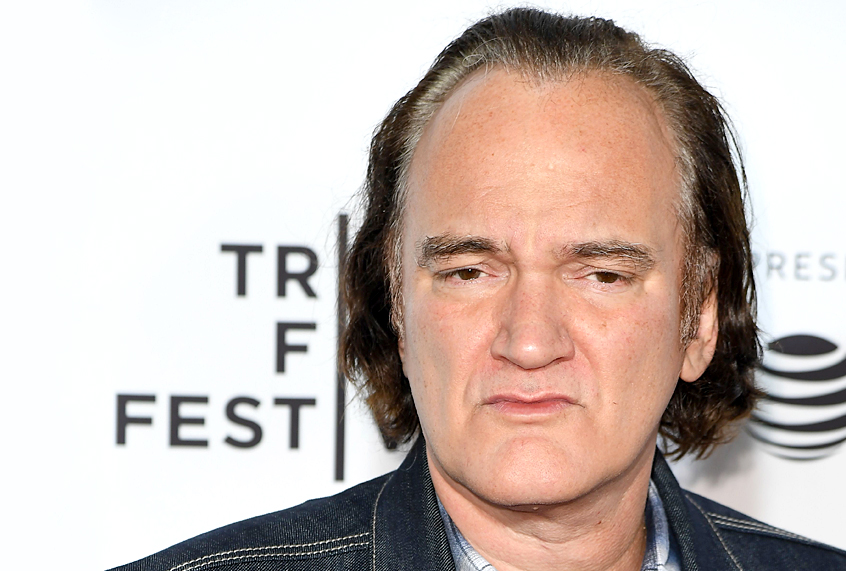Days after a recording of him seemingly putting the blame for Roman Polanski’s 1977 rape of a 13-year-old girl on the young victim resurfaced in the media, director Quentin Tarantino has offered an apology to the survivor, Samantha Geimer.
In a statement published on IndieWire Thursday, the director said: “I want to publicly apologize to Samantha Geimer for my cavalier remarks on ‘The Howard Stern Show’ speculating about her and the crime that was committed against her.”
During a recording of Stern’s show in 2003, Tarantino said Polanski, “didn’t rape a 13-year-old.” Polanski was convicted of the rape in 1978 and fled the United States before sentencing. He has been accused of multiple other rapes and assaults since then.
Tarantino continued in his 2003 comments, “It was statutory rape . . . he had sex with a minor. That’s not rape. To me, when you use the word rape, you’re talking about violent, throwing them down — it’s like one of the most violent crimes in the world. You can’t throw the word rape around. It’s like throwing the word ‘racist’ around. It doesn’t apply to everything people use it for.”
When pressed by the host, who reminded him that Geimer was well below the age of consent at the time and drugged on Quaaludes and alcohol, Tarantino turned defiant. “She wanted to have it and dated the guy,” he insisted, adding that “she was down with this . . . down to party.”
He also added, “And by the way, we’re talking about America’s morals, not talking about the morals in Europe and everything,”
On Thursday, Tarantino condemned his own statements from 2003, saying, “Fifteen years later, I realize how wrong I was. Ms. Geimer WAS raped by Roman Polanski.” He continued, “When Howard brought up Polanski, I incorrectly played devil’s advocate in the debate for the sake of being provocative. I didn’t take Ms. Geimer’s feelings into consideration and for that I am truly sorry.”
Addressing Geimer directly, he wrote, “So, Ms. Geimer, I was ignorant, and insensitive, and above all, incorrect. I am sorry Samantha.”
Following the resurfacing of that audio, Geimer — who went by Samantha Jane Gailey at the time of the rape — said, “It’s not a big deal to me what people think. It doesn’t make a difference in my life. I know what happened. I do not need other people weighing in on what it’s like getting raped at 13.”
Geimer added, “I’m not upset, but I would probably feel better if he realizes now that he was wrong, after 15 years, after hearing the facts,” and said, “nobody has to be pissed off on my behalf. I’m okay.”
She went on to say that Tarantino “was wrong and I bet he knows it . . . I hope he doesn’t make an ass out of himself and keep talking that way.”
The audio is only one part of a controversy currently surrounding Tarantino. Through an article in The New York Times by Maureen Dowd, former Tarantino creative collaborator Uma Thurman accused the director of enabling Harvey Weinstein’s alleged pattern of sexual abuse and coercing her into performing a sequence in “Kill Bill” she felt to be unsafe. During the filming of that driving sequence, Thurman’s car crashed, injuring her.
Thurman also accused Tarantino of collaborating with Weinstein and other producers to suppress footage of the accident, which could presumably be used in a lawsuit. The footage has since been released, and Tarantino has responded to Thurman’s comments, saying that putting her in the car was “one of the biggest regrets” of his life, denying he was part of any conspiracy to suppress the footage and claiming he helped her obtain it.
Tarantino is certainly in the midst of an exhaustive apology and denial tour. Whether that will have any effect on the fire currently surrounding him, fed in part by the #MeToo movement, remains to be seen.


